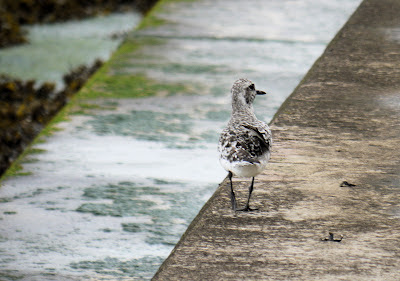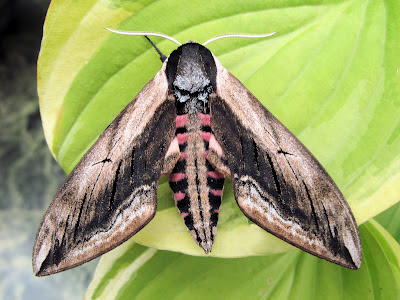Quick trip to Allhallows on the way back from a nightmare shop, weather was a lovely bright even warm day with visibility excellent.
Resting elbows on the seawall I scanned the shore and mud of the Thames Estuary with the trusted Swarovski bins they revealed an absence of birds of what I was there for BIRDS, but eventually spotted at distance14 Brent Geese and a few Oyster Catcher, 3 bait diggers and of course gulls.
after half an hour I abandoned my quest and made my way home for a very welcome brew.
22 Dec 2012
14 Dec 2012
The 12-12-12 certainly will be memorable as being one of the
hardest frosts I can remember, but that said what a beautiful white blanket
nature chose to cover her domain with, yes, nature can be cruel but, she can
also be an outstanding artist as we witnessed yesterday, I was hoping that
today would bring about an action replay but alas not.
Christmas is nearly upon us and not too far off a new year,
but before that occurs we have to get over the Christmas two days of mayhem and
over indulgence, which brings me round nicely to Christmas dinner, and the
unfortunate bird we choose, in Dickens time it would have been a Goose but
these modern times Turkey seems to be the preferred choice.
Turkeys are somewhat amusing birds, and as baby Jesus was
arriving in the stable some 2000 years ago, the wild turkeys of South America
(one of only two species in the world) were being domesticated by the Aztecs
Mayans and other tribes of Indians. The Spanish introduced the domestic turkey
to Europe in the 16th Century, we then took the turkey back across
the Atlantic to North America at a time of the Irish and Scottish land
clearances who, among others migrated to the New World taking livestock goods
and chattels, to where the second turkey species is domiciled, there domestic
potential not being realised.
Up until the 19th century and prior to intensive battery
farming of turkey’s the delicacy on our
dinner tables, would have been the bird of that time, the Goose.
13 Dec 2012
The plight of the Turtle Dove.
Should you be anticipating a present of two Turtle Doves
this Xmas, from your true love, as the carol goes, you will inevitably be in
for a disappointment.
Latest compiled figures show the numbers of Turtle Doves
have depleted by nearly two thirds in five years, with just 14,000 pairs in
Britain the species is in dire straits. The RSPB states that the Grey Partridge
- which also features in the song – is also under threat.
Losing six out of ten of our Turtle Doves and three out of
ten of our Grey Partridge in just five years, you do not have to be a
mathematician to work out the scenario of the next ten years, these figures if
correct makes both species an unsustainable wildlife disaster.
These two icons of Christmas are telling us that wildlife
not just for them but in general has reached crisis point.
Turtle Doves for the record and for the uninitiated are
never here at Christmas they migrate and winter in Africa, it is said that
intensive farming in the sub Saharan wintering ground are robbing the birds of
natural habitat, the journey back to us they are running the gauntlet of
Mediterranean hunters eager to shoot them for the pot.
And finally in all my years in the countryside I have never
seen a partridge in a pear tree, and the composer of the carol, we can assume
was not associated with birdlife in any way.
I can also say that personally I have not heard or seen a
Turtle Dove for four years and have not photographed one for five years.
Happy Christmas.
25 Oct 2012
Trip to Sheppey 25-10-2012
A morning
trip to RSPB Elmley, very misty and grey and the temperature was pleasantly mild, sat in the Wellmarsh hide
for a couple of hours, not much to get the heart racing or to write home about,
seen on the scrape. Solitary Grey Plover, Seven Snipe, 50+ Teal, 300+ Greylag at
some distance.
Seen on the
slow drive to and from the hide, Marsh Harrier, 8
Carrion Crows, 1 Stonechat, fence sitting,
8+ Curlew, A scattering of Plover, Fungi were very apparent, picked
myself a great feed of fresh Field Mushrooms.
Greylag Geese
This flight of geese came over the top of Wellmarsh Hide and they are about to join the many greylag already on the marsh.
Mixed Bunch
Lapwing, and a fungus I cannot identify, Sparrows on my feeder, the sparrow in the centre I think is leucistic.
5 Oct 2012
My Patch 04/10/2010
A visit to my patch yesterday and what a beautiful day it
was. Birdlife was not too apparent 2 Carrion Crows , possibly the same Grey
Plover harassing a Crow, 6+ Shelduck, a small raft of Mullard, 5+ Little Egret,
Flights of Oyster Catcher pushed off feeding by the tide, and numerous House
Martins and Swallows no doubt late broods in a final feed before the off.
2 Oct 2012
Firstly by
the dated entries I have not posted any info for some time the reason being I
have had problems with my eyes as they are quite an important piece of
equipement when involved with photography and nature observation, but I am
pleased to announce that my cataract has been remedied and progress is being
made with AMD and the treatment is LYCENTIS, and to date things are much
improved.
Regarding
the pictures below they depict my new birding patch at Allhallows, not far from
my domicile, and my first visit produced the Grey Plover depicted.
There are
some diverse plants in the area, sea, marginals and normal countryside flora, not
very up on marine plants so it looks like I am going to have to purchase
another expensive book. The area is very
exposed to the elements so I am not looking forward to the winter.
The photo
depicting a landscape you can just pick out Northward Hill RSPB reserve so, it
gives an idea of the location.
1 Oct 2012
13 Jul 2012
7 Jul 2012
Moth Trap
Dug out the moth trap couple of days ago and the results are pictured below, I must admit moths and butterflies are not not my forte and have a tendency to favour the larger and more impressive of both species.
One of the above hawks I was unable to identify, as near as I could ascertain the conclusion was that it was a Lime Hawk.
The leopard moth as I understand from my reference book not very common in Kent.
The Skylark was taken at RSPB Elmley.
One of the above hawks I was unable to identify, as near as I could ascertain the conclusion was that it was a Lime Hawk.
The leopard moth as I understand from my reference book not very common in Kent.
The Skylark was taken at RSPB Elmley.
30 Jun 2012
ELMLEY TRIP
Trip to Sheppey Thursday 28th very hot and humid,
distinct lack of birdlife and significant by their absence, would have expected
to see by now Swallows in abundance, but this was not the case save a couple of
pair trying hard to make home in the ladies and gents toilets.
Fringing a large field close to the farm a swayth of plough
around the perimeter has been sown with seed bearing plants for cover and future
food for birds, well done rspb but the young growth is a significant attraction
to the Brown Hares of which I counted five.
Nothing in the way of heart stopping observations were made,
perhaps the best was a close encounter with a Peregrine Falcon whilst enroute
to the main road, too quick for the camera, alas. Four sightings of Marsh
Harrier quartering the dykes, seven sightings of Yellow Wagtails and on the
Wellmarsh scrape a family of Shelduck, Tufted Duck with five young, BH gulls in profusion which just about
concludes my visit. See pics below.
29 Jun 2012
Black Headed Gull
Black Headed Gull he might be but is browned off hatching eggs in thursdays
humidity, he or she seemed to be panting.
26 Jun 2012
Avocets
Difficult to get a decent shot at Elmley, very few are present at Wellmarsh
and those that are resident are hidden by weed growth on the islands, but this is
one I did manage to capture.
21 Jun 2012
Down in the mouth at Elmley.
Disappointing trip to Elmley Yesterday 20-6 uneventful on
drive to the farm then on to the Wellmarsh car park first impressions were,
after entering the hide were, hundreds of nesting BH Gulls which have obviously
taken over the site, other birds were 3 Tufted Duck 4 Avocets, 2 Oystercatchers
couple of Mallard and that was it spanning two hours. The islands were completely
covered with growth eighteen inches high which has hidden most of the nesting
birds making observation almost an impossibility, and, as per other years there
are a lack of Barley Straw Bales which combats the algae.
Thoroughly vexed, I
decided to slow drive it to the main road, which, by comparison with the last
two hours held real possibilities, first confrontation were a couple of
quartering Marsh Harrier followed by a beautifully bright Yellow Wagtail
dispatching a Dragonfly, followed by numerous sightings of Reed Bunting,
Skylarks, Meadow Pipits, Lapwing with young and the cherry on the cake was a
pair of Avocet and four newly hatched young on the road between Kings Hill Farm
and the main road, have never encountered Avocets nesting this area, probably
because the Wellmarsh Islands are over occupied, the parents were trying to
herd the young off the road which took 15 minutes, that, gave rise to a few
pictures being taken.
What we eventually observed appeased the day.
Subscribe to:
Comments (Atom)

















.JPG)
.JPG)
.JPG)
.JPG)
.JPG)
.JPG)
.JPG)
.JPG)

























